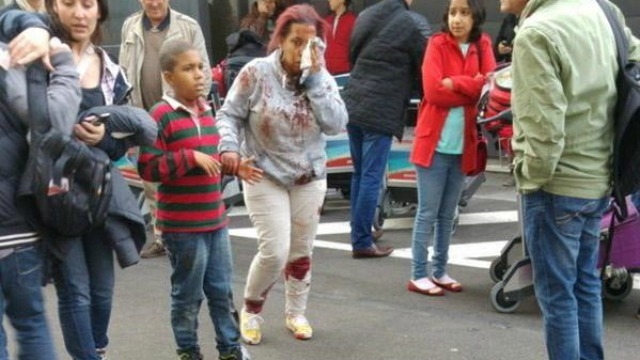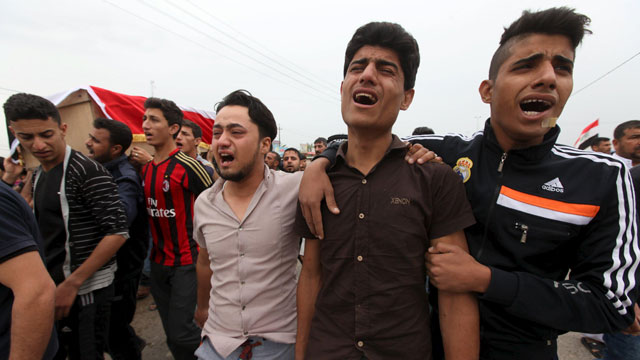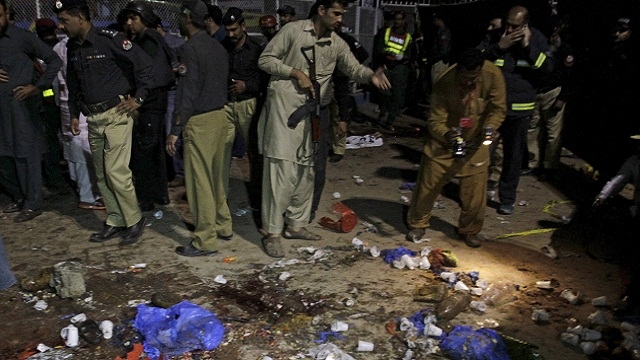
Lahore, Brussels, Iskandariya, Ankara, Istanbul, Grand Bassam and Maiduguri. These are the sites of terror strikes around the world in just the past 30 days, when clubbed together the death toll comes to nearly 200 innocent people.
Terrorism is fast becoming a true global norm, with regional tensions in various parts of the world, specifically the Middle East, becoming more and more isolated reasoning for being the exclusive reason behind the rise of organisations such as the Islamic State (ISIS). Terrorism has been given space to grow, whether due to political inaction or political design, and like any evolutionary idea it has found new, modern ways to harness its agendas. It today challenges the very idea of geographical boundaries, something that we all take refuge in with the constructions of ‘national security’ that follows.
The attacks in Brussels, Belgium that killed 37 people saw a little less surprise than the Paris attacks just some months ago. The reasons for attacking Brussels, the hub of the European Union, headquarters of NATO and a place teeming with spooks and diplomats, was not surprising. The city is the centre of the very idea of a unified Europe, which has been on the edge since the financial crisis of 2008 and only pushed further to its tenterhooks as the immigrant crisis became even more strained over the past few months. Beyond that, Belgium, in general, has had problems with jihadists making parts of Brussels as their ideological centre in Europe that surprisingly has a lot more to do than just with Muslims taking a fancy to the ideas that run ISIS. Terrorism today is ‘mutating’, a term highlighted by The Guardian’s Jason Burke perhaps puts it in better perspective. Burke suggests that ISIS is seen as a ‘street gang’, where some young and lost Muslim youths in Europe are finding refuge. A question of social assimilation is also put forward, both from a European and a Muslim perspective.

Injured people are seen at the scene of explosions at Zaventem airport near Brussels, Belgium. —Reuters
This mutation, so to speak, is in part tactical and in part psychological. It is safe to say that Europeans have very rarely imagined their own cities to come in the crosshairs of terrorists, and perhaps are just not prepared yet in a manner say India has been for a good part of the past three decades to deal with such eventualities. Perhaps, it is just unimaginable for Europe to think that their still peaceful borders and open societies may become challenged, not uniting further but dividing the very ambitious, partly chaotic yet excellent idea of Europe and the European Union.
However, the global disconnect in tackling terror as a common threat today is as worrying as the rise of radicalisation and spread of terror through modern means such as the internet. While there is common grief around the world on Brussels, there is very little coordination to back up these concerns. Distances between countries in counter-terror cooperation are gaping and very little cohesive efforts are being put in to fix this anomaly. The fact that attacks in Brussels were committed by people who were marked as threats, and yet they were successful in their mission, perhaps also shows the dysfunction in intelligence gathering and sharing in the midst of a unit such as the European Union itself.
The facets of Islamist militancy are many, it is a layered cake where while Islam may be a common binding thread, the reasons for a group that is waging jihad vary tremendously. For example, even if Boko Haram in Nigeria may have attached themselves with ISIS, such a move is mostly to bolster its own rankings and ride the ‘jihad marketing’ wave that ISIS had unleashed via its extraordinarily organised media campaigns which include publishing a glossy magazine called Dabiq and using social media to great success as a propaganda tool.
This new age of spreading jihadist ideologies, which till the recent past was thought to only emit from certain outlets, challenges the very counter-terror strategies that have become institutionalised. A basic thing such as inter-agency intelligence sharing between friendly states still takes years to fructify, a timeframe that in today’s world is unaffordable.

Mourners attend the funeral of a victim killed by a suicide bombing at a soccer field in Iskandariya, Iraq. —Reuters
One of the outcomes of a more globally connected response to terrorism could be a separate new agency, based on the design of Interpol, to specifically look into extremist and terror-related intelligence, ranging from ISIS and the Taliban to FARC rebels in South America and so on. But, there are impending issues here as well. While many individual states have strong intelligence apparatus as part of their national infrastructure, sharing this intelligence could be both counter-productive and productive at the same time for a state’s policies. This is where the challenges of sharing intelligence stalls, one state’s counter-terrorism policy could be another’s jaded national security policy. This hypothesis is particularly pertaining in the Middle East, where people suffer from terrorism much more than any other part of the planet.
Clearly, policies on clamping down of Islamist terrorism in the post 9/11 world have not been very successful. From the Iraq war, under whose failure the seeds of ISIS were planted in Iraqi jails, to the European-led intervention in Libya where dictator Muammar Gaddafi was dethroned during the height of the Arab Spring without anyone thinking about a successor. Libya till date is in critical political turmoil, with organisations such as ISIS taking advantage of the political vacuum and setting up their own operations there. Then there is, of course, the question of state-sponsored terrorism, such as the brand practiced by Pakistan against India, using many proxy groups such as the Lashkar-e-Toiba. But even Pakistan, which sponsors India-centric terror networks, is now faced with the same demons that it has honed in shape of the Pakistan Taliban (TTP) and other such groups. The recent bombings at a children’s park in Lahore that killed more than 70 people is a reminder of what pandering to terrorism as a state tool can do to one’s own sovereignty and population as well.

Security officials gather at the site of a blast outside a public park in Lahore, Pakistan. —Reuters
Terrorism is a multi-faceted phenomenon now and is challenging societies around the world in different shapes and forms. A prolonged absence of a cohesive, global outlook on how to deal with the terrorism is in need of a debate at the highest levels of governance, polity and civil society. The ‘war on terror’ has till now been the architecture of one country, namely the US. However, it is the missing global narrative that needs to be constructed at this hour.